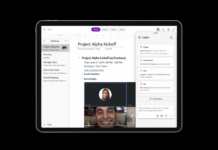Well, we all know that the social networking giant, Facebook, has been found pushing its new VPN app which is known as “Onavo Project” on iOS devices. The recent revelations from Will Strafach, CEO at the Sudo Security Group throws lights on the types of data that are collected by the app on 5th March 2019.
Facebook’s VPN Tracks You Even When You Turn It Off
Well, we all know that the social networking giant, Facebook, has been found pushing its new VPN app which is known as “Onavo Project” on iOS devices. Facebook had taken this massive step to protect users from data theft who use internet through public networks.
With this new project, Facebook aims to protect the personal information of users who surf the web through public networks. The app was actually acquired by Facebook way back in the year 2013 and is supposedly being used to track user activity and collect data.
The recent revelations from Will Strafach, CEO at the Sudo Security Group throws lights on the types of data that are collected by the app on 5th March 2019. The VPN app actually utilizes a Packet Tunnel Provider app extension which is mainly responsible for sending the collected user data to Facebook.
You will be shocked to know that the extension gathers users data even when it’s turned off. Here’s are the following information that the VPN app collects from users:
- Duration for which the device screen is turned on and off
- Amount of daily Wi-Fi data used
- Amount of daily cellular data used
- Duration of VPN connection used
Well, it’s worth to note that the latest version of Facebook app carries a “Protect” button which redirects users to download Onavo Project. So, Facebook is also indirectly pushing its users to use the VPN app. The app has been created to keep the data safe while browsing or sharing information on the internet.
The application also does a good job of protecting users. It warns users whenever they visit potentially malicious or harmful websites. However, at the same time, it also secretly sends device-related information to Facebook.
Will Strafach also mentioned that the intention of Facebook is still very unclear. It’s still not apparent what Facebook actually intends to do with the collected information. The social networking giant hasn’t commented anything on this matter yet.
So, what do you think about this? Share your views in the comment box below.



